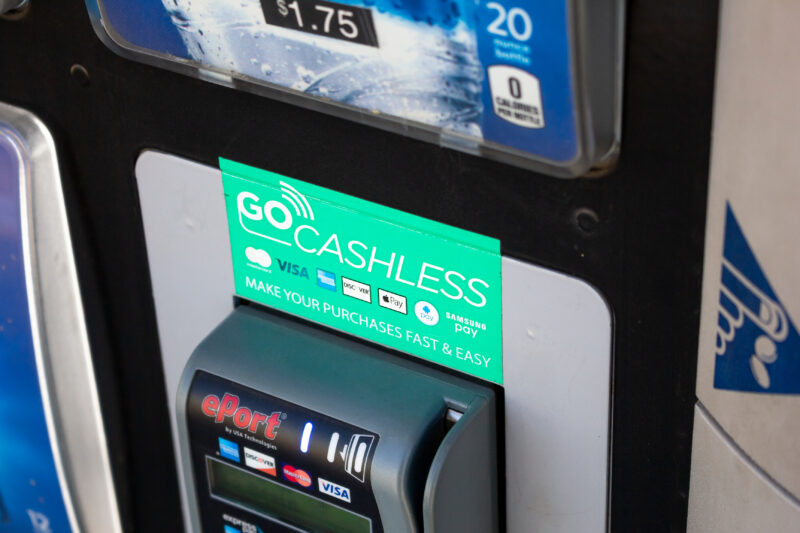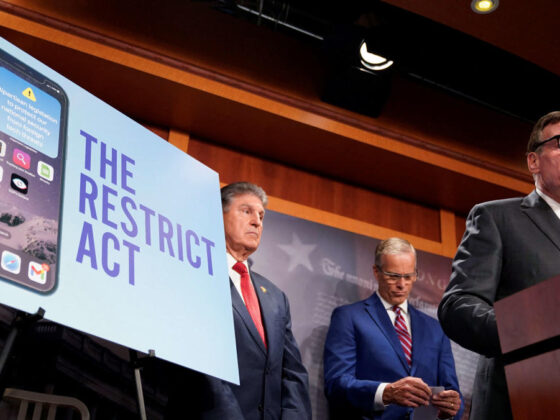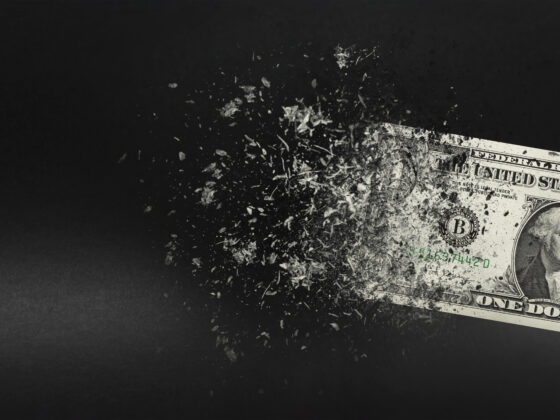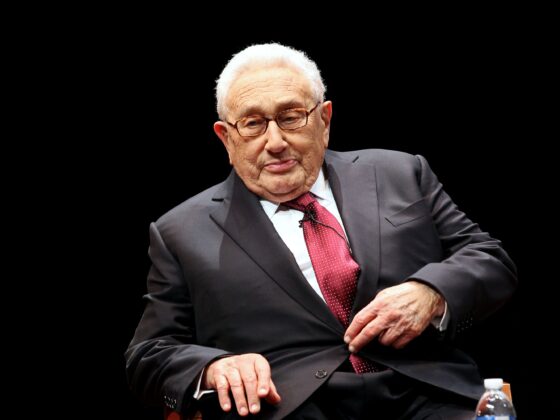Almost half of British people have recently been in a place that has not accepted or has discouraged the use of cash as payment. That’s according to a YouGov survey commissioned by the ATM network provider Link. Some 45% of the survey’s more than 2,100 respondents said they had been somewhere in the previous eight weeks where cash was declined or discouraged. Locations include shops, bars, restaurants and car parks.
Residents of London were particularly likely to have experienced this while people in Northern Ireland were least likely. One in five respondents said they found the experience “fairly or very inconvenient.” When asked how they use cash to manage their finances, a fifth of respondents said they put spare change in jars or piggy banks — . Crucially, most of the people surveyed (71%) said they had used cash at least once in the previous two weeks.
The Partial Return of Cash
This chimes with the findings of an October 2022 report published by the Bank of England titled “Knocked Down During Lockdown: The Return of Cash”:
[T]he value of banknotes in circulation remains elevated even two years on from the pandemic, at close to a historic high. This reflects people – up to 60% of the population – holding more cash as a store of value, which is a fundamental role of money…*
While the future trajectory remains uncertain, both in terms of the speed and extent of future decline, what is certain is there remains a significant group of people, with varied characteristics, who value cash…
Prior to the pandemic, the UK had experienced a marked decline in the use of cash to pay for goods and services. Only 23% of payments in 2019 were made in cash, down from around 60% a decade ago. In 2020 when the pandemic was in its early stages, this figure dropped by 35% compared to 2019, with cash accounting for 17% of all payments. Since 2017 cash use had been declining by around 15% each year, so 2020 represented an acceleration of this decline.
There has since been a sustained, if partial, recovery in cash use, and more recently, signs of stabilisation in cash use trends. In 2021, there was a reduction in the rate of decline in cash use, with cash accounting for 15% of all payments in the UK. Moreover, an estimated 73% of consumers said they used cash in January 2022, a notable increase from only around half of consumers in mid-2020.
While British citizens are, as a whole, using a lot less cash than before, survey after survey reveals that most of them do not want to live in a fully cashless economy. And cash remains the preferred choice of payment for millions of people. A poll by Accenture late last year found that 63% of Brits are using cash at least five times a month, second only to debit cards, which are used over five times a month by three-quarters of Brits.
Yet it seems to be getting more, rather than less, difficult to use cash in many retail settings, according to the YouGov survey. British friends and family of mine have reported similar experiences. It would be interesting to hear what UK-based NC readers can add to the picture.
All of this is possible because legal tender traditionally has a very narrow definition in the UK, and strictly applies to money used by a debtor to settle a court-awarded debt when offered (‘tendered’) in the exact amount that is owed to a creditor. In other words, if a debtor is offering to settle a debt in court with legal tender such as cash, the creditor is not allowed to refuse it. Shops and hospitality businesses, by contrast, are.
As I noted in my Aug 16 2022 piece, Is Cold, Hard Cash Making a Comeback?, many retailers, particularly in the more salubrious parts of towns and cities, are taking full advantage of this loophole, despite the discriminatory effects it has on the millions of people who still depend on cash, including the roughly 1.3 million who are unbanked.
Ignoring the Vulnerable
Last Summer, two petitions were organized by cash advocates. The first called on the government to ban shops from refusing cash payments. The second proposed requiring all businesses and public services to accept cash. Between them, the petitions attracted 55,000 signatures, an admittedly underwhelming number. The government’s response was emphatic:
The government does not plan to mandate cash acceptance. While the government recognises the ability to transact in cash remains important to millions of people across the UK, particularly those in vulnerable groups, it remains the choice of individual businesses as to whether to accept or decline any form of payment, including cash or card. This may be based on factors such as customer preference and cost.
It should perhaps come as little surprise that this UK government prioritises freedom of choice for businesses (to reject cash) over freedom of choice for citizens (to use it). This is a government that has always and will always place the interests of private sector businesses over public interest.
Big private sector players, including banks, tech giants, payment processors (primarily Mastercard and Visa) and fintech startups, have clear individual incentives to destroy cash — and have been trying to do so for over a decade. As journalist, author and cash advocate Brett Scott notes, since the pandemic the private sector has turbocharged its anti-cash drive, “as Big Finance, Big Tech and Big Retail have weaponised the public’s temporary fear of physical contact to amplify the anti-cash automation agenda that they already had.”
According to a report published last year by the UK’s number-one tabloid, The Sun, many retailers and hospitality chains in London, Birmingham and Newcastle, including Pizza Hut, Caffe Nero and sushi chain Itsu, have gone fully cashless since the pandemic. Some supermarket chains are experimenting with “checkout-free” stores, where neither cash nor cards are used, though Amazon’s recent u-turn on cashierless stores suggest most consumers prefer the human touch.
At the same time, the UK Treasury and Bank of England are working frantically behind the scenes with private sector players to launch a digital pound. They insist that cash will remain an option yet if a digital pound does become a reality, it will probably mean that even more businesses will eschew the use of cash. This in a country where more than 8 million adults “would struggle to cope in a cashless society,” according to the Access to Cash Report. For many people, it says, “using cash is not a matter of choice, but of necessity.”
Read the rest here:













